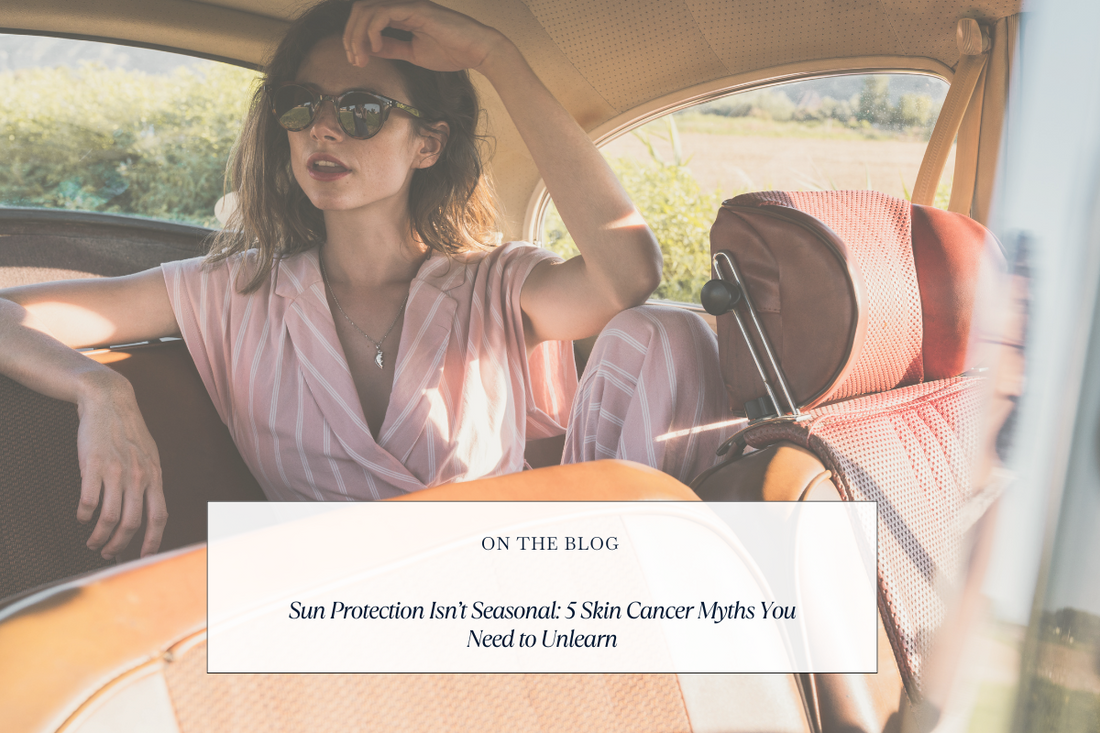
When I was diagnosed with melanoma at 34, it was jarring—but also illuminating. Suddenly, I realized how many misconceptions we live with when it comes to sun safety. I created Ivy Coast to fill the gap I saw in fashion-forward UPF clothing, but our mission goes beyond style. It's about protection—with purpose.
If you think sun protection is only for beach days or sunburn-prone skin, I’m here to gently challenge those ideas. Let’s clear up a few common myths—and shed light on what every woman should know about skin cancer.
Myth #1: "Sun protection is only for the beach."
Fact: The UV Index doesn’t take a day off. In fact, it’s often high year-round depending on where you live—and especially reflective on snow, water, and even concrete. Think you're safe indoors? Not always. UV rays can penetrate windows, which means daily protection is always in style (and necessary).
Myth #2: “Skin cancer only appears where you get sunburns.”
Fact: Melanoma and other skin cancers can develop in the most unexpected places—under your nails, on your scalp, in your eyes, and even on areas not commonly exposed to sunlight. That’s why full-body skin checks are so important. You’re not just looking for burns—you’re looking for changes.
Myth #3: “Sun protection isn’t necessary when skiing or in colder climates.”
Fact: Snow reflects up to 80% of UV radiation. That means your skin is exposed twice—once directly from the sun, and again from the reflection. Just because it’s cold doesn’t mean your skin is protected. Sunscreen and UPF layers are your best winter accessories.
Myth #4: “You don’t need SPF while flying.”
Fact: UV exposure increases with altitude. On a plane, you’re closer to the sun—and yes, rays can come through those little windows. Dermatologists recommend wearing SPF when you fly, especially during daytime travel. Window seat girls, take note.
Myth #5: “Daily SPF is only for sunny days.”
Fact: Up to 80% of UV rays still pass through clouds. Even on an overcast day, your skin is absorbing UV radiation that can lead to long-term damage. Think of SPF as skincare, not just sun care.
Protection You’ll Actually Want to Wear
Part of my mission with Ivy Coast is to design pieces that don’t feel like protection—they feel like you. Our signature bamboo linings, elevated silhouettes, and built-in UPF 50+ make it easy to protect your skin without compromising on style. Because I believe in making sun safety beautiful, effortless, and empowering.
I hope if nothing else, this blog post encourages you to revisit your SPF routine—or even book that long-overdue skin check.
I can’t tell you how much it means when someone from this community messages me to say they scheduled their first dermatologist appointment because of Ivy Coast. That’s the impact I dreamed of when starting this brand.
It’s the small steps—one person at a time—that build something bigger than fashion. Thank you for being part of this journey, and for following along as we continue to design with purpose, protect what matters, and uplift one another along the way.